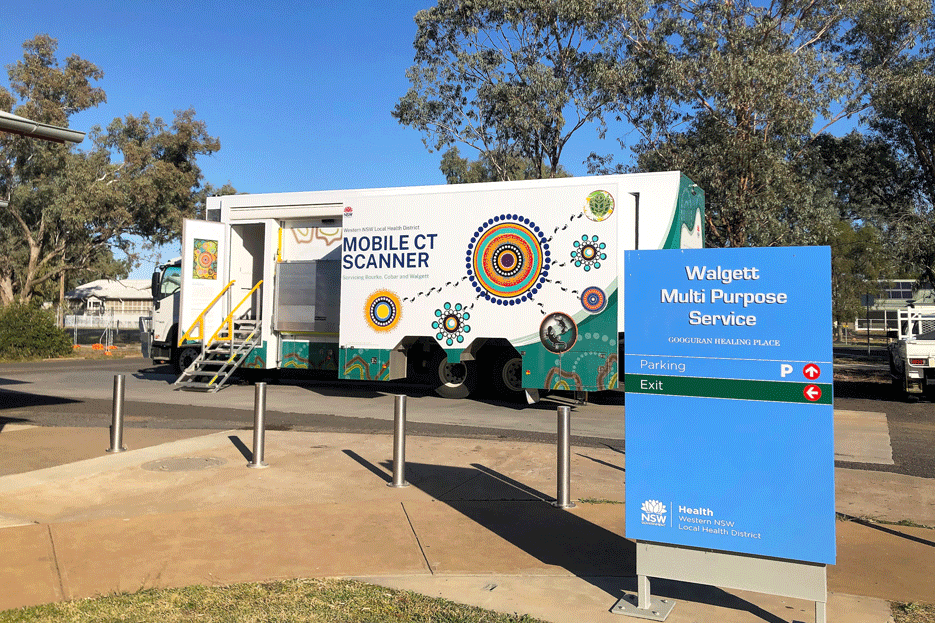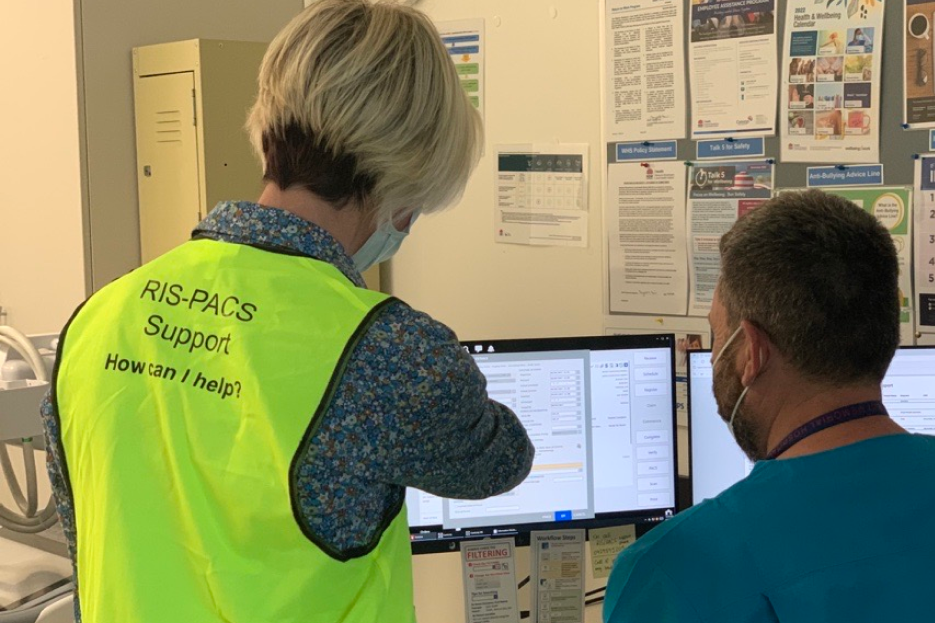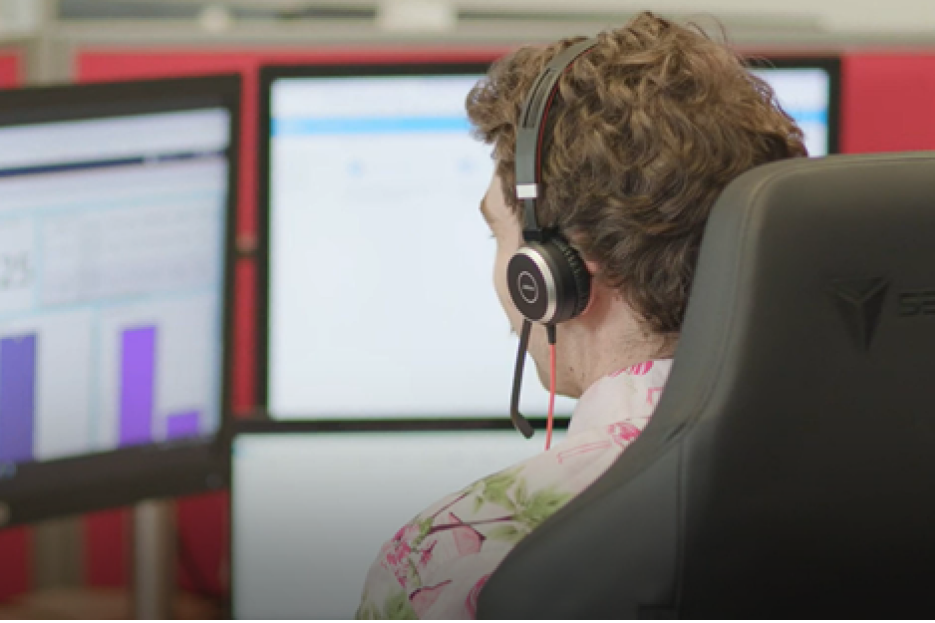Ongoing collaboration between Western NSW Local Health District (WNSWLHD) and eHealth NSW has transformed services for patients in regional and rural/remote communities with greater access to advanced medical imaging services like computer tomography (CT) scans.
A patient-centred service going where patients are
A new mobile CT service was launched at WNSWLHD in May 2023 so to meet the needs of patients in rural and remote regions with access to important diagnostic services.
A CT scanner with expanding pods was built on the back of a truck to make the space large and comfortable with an air-conditioned scanning room and a reception area.
To support WNSWLHD’s approach to improve health accessibility in regional and rural and remote areas, the team behind eHealth NSW’s centralised digital solution for medical imaging information – the Radiology Information Systems & Picture Archiving & Communication System (RIS-PACS) - worked closely behind the scenes.
RIS-PACS supported the CT service at WNSWLHD by integrating multiple imaging and archive systems into one centralised platform and providing the digital storage space needed.
Through its state-of-the-art technology, RIS-PACS also supported the workflow of the Mobile CT service providing clinicians throughout the state, with instant access to a patient’s medical images, as soon as they are captured.
This means patients in Cobar, Walgett, Bourke, and surrounding areas now have reliable and ongoing access to high quality medical imaging services locally, removing the need to travel long distances for diagnostic care.
According to James Harvey, Director of District Clinical Services Division at WNSWLHD the service has been well received by their remote communities. “Now the service is linked to NSW Health’s centralised RIS-PACS, clinicians can access the images and reports with very little delay, providing added benefits to our patients when being transferred for higher level care” said James Harvey said. Each week, the truck rotates between these three locations saving patients up to 8-hours in round trips to Dubbo. In the first five months the mobile CT service has helped to:
- Eliminate over 255,520 kilometres of patient travel
- Give back over 120 days of travel time
- Perform over 500 scans
- Avoid over 60 inpatient transfers.
About RIS-PACS
From image requisition through to diagnosis, RIS-PACS provides a single source of truth and enables clinicians across NSW to retrieve images quickly and easily no matter what format they are in. Since 2020, RIS-PACS has helped connect 1,517 pieces of medical imaging equipment and migrate 28 million imaging studies. By mid-November it will be live across 85 hospitals in 13 LHDs.
For more information, please visit the RIS-PACS solutions page.




